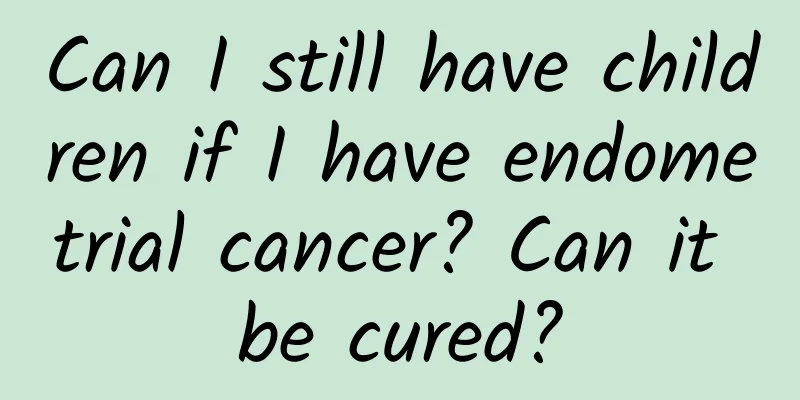Please check! 2021 New Year's Day and Spring Festival Health Tips

|
The Spring Festival is the most important traditional festival in my country. Most people who work or study far away from home go home to reunite, while some take advantage of the long holiday to travel. China Center for Disease Control and Prevention kindly reminds you that we are still in the global pandemic of the novel coronavirus pneumonia. While enjoying the joyous and peaceful Spring Festival, we must not neglect the prevention and control of the novel coronavirus pneumonia, and we must also prevent human infection with avian influenza, norovirus infection, food poisoning, and carbon monoxide poisoning. [Important Tips]
Characteristics of relevant risks and specific preventive measures 1. Novel Coronavirus PneumoniaSince the beginning of winter, the frequency of local clustered epidemics caused by imported infectious sources has increased in my country. Due to timely detection and control, the scale of the epidemic has been relatively small. The global epidemic has continued to rise, with an average of more than 640,000 new cases per day since mid-December; since the outbreak, the cumulative number of reported cases worldwide has exceeded 77.53 million, and the cumulative number of deaths has exceeded 1.72 million (for real-time epidemic information, please see the distribution of the new coronavirus pneumonia epidemic of the China Center for Disease Control and Prevention at http://2019ncov.chinacdc.cn/2019-nCoV/global.html). In the coming period, the global epidemic will continue to rise. Although many countries have approved the emergency use of COVID-19 vaccines, due to factors such as production, distribution, vaccination, funding, and the priority of wealthy countries to order most vaccines, it is unlikely that vaccination will form an immune barrier and change the development trend of the epidemic in the short term. Therefore, during the Spring Festival in 2021, it is likely that the overseas epidemic will still show a high-intensity epidemic; the risk of imported epidemics in my country is still relatively high, and population mobility will increase the risk of the spread of the epidemic. Main preventive measures: The current overseas epidemic is serious, and the risk of infection for individuals traveling abroad is high. According to the prevention and control policies of various places, inbound personnel must provide strict double-negative test certificates, and after entering the country, they must be quarantined for 14 days plus 7 days of health follow-up. Therefore, it is recommended that individuals fully weigh the timing and necessity of travel and avoid unnecessary cross-border travel. People from medium- and high-risk areas in China are restricted from traveling, and people from low-risk areas are not allowed to go to medium- and high-risk areas. The risk level of the new coronavirus epidemic in various parts of my country can be checked in real time on the State Council website column (http://bmfw.www.gov.cn/yqfxdjcx/risk.html), the mobile application "State Council Client" or WeChat applet. People can arrange travel between low-risk areas within the country at different times, but it is recommended that the elderly and those with underlying diseases avoid going out during the holidays. During the trip, when taking airplanes, trains and other means of transportation, you must abide by the order and management requirements of the crew, wear a mask throughout the journey, maintain good hand hygiene, and properly keep the tickets for inquiry. If you experience symptoms such as headache, fatigue, loss of smell and taste, dry cough, and fever during the journey, you should immediately go to the nearest medical institution for treatment and cancel or suspend your trip. During the holiday, try to reduce unnecessary crowd gatherings, control the size of dinner parties, wear masks when in contact with others, keep a distance, and wash your hands frequently. After returning from a trip, continue to monitor your personal health and observe yourself for 14 days. If you feel unwell, seek medical attention in a timely manner and inform your doctor of your travel history. 2. Human infection with avian influenzaSince the beginning of winter, bird flu outbreaks have been detected among poultry in my country, and a few sporadic cases of human infection with bird flu have also been reported in a few areas in southern my country. The main source of human infection with avian influenza is contact with infected live poultry or visiting contaminated live poultry markets. Patients generally present with flu-like symptoms in the early stages, such as fever, cough, and little sputum, which may be accompanied by headache, muscle aches, and general discomfort. Severe patients develop rapidly, often with symptoms such as severe pneumonia. Main preventive measures: Try to avoid contact with live poultry or live poultry markets. If contact is necessary, personal protection should be strengthened, such as wearing masks and gloves, and washing hands with soap and water as soon as possible; do not buy live poultry, and it is encouraged to buy fresh or chilled poultry that has been slaughtered and processed in a centralized manner; do not buy live poultry from live poultry markets or mobile vendors for domestication, and do not mix them with existing poultry; if you have fever and respiratory symptoms, you should wear a mask, see a doctor as soon as possible, and tell the doctor whether you have a history of contact with poultry or whether you have been to a live poultry market before the onset of the disease. 3. Norovirus diseaseNorovirus outbreaks mainly occur in childcare institutions or schools. Norovirus outbreaks also often occur in tour groups, cruise ships, and holiday centers. In recent years, my country has reported several outbreaks of norovirus in domestic and foreign tour groups. Since the beginning of winter, norovirus outbreaks have been reported in many schools and childcare institutions. People are usually infected through the following ways: eating or drinking food or water contaminated with norovirus, touching objects or surfaces contaminated with the virus and then putting their fingers into their mouths, and contacting virus-infected patients (such as caring for patients, sharing food with patients, or sharing tableware). The most common clinical symptoms are vomiting and diarrhea, followed by nausea, abdominal pain, headache, fever, chills, and muscle aches. Most patients recover after symptoms last for 2 to 3 days. Severe illness or even death may occur in very rare cases. The high-risk groups for severe illness are the elderly and young children. Main preventive measures: Pay attention to washing hands, especially after going to the toilet and changing diapers, and before each eating, preparing and processing food; fruits and vegetables should be carefully washed before eating, and oysters and other shellfish should be deeply processed before eating; Norovirus-infected people cannot prepare and process food or accompany other patients during the illness and within 3 days after recovery; surfaces contaminated by patient vomit or feces should be cleaned and disinfected in time with chlorine bleach or other effective disinfectants, and contaminated clothing or bed sheets should be taken off and washed immediately. Wear rubber or disposable gloves when cleaning, and wash hands carefully after cleaning. 4. Food poisoningDuring the holidays, there are more opportunities for gatherings and dining out. In the case of poor food hygiene, the possibility of food poisoning will increase. In mainland my country, microbial food poisoning has the highest number of incidents and the largest number of poisoned people. It mainly occurs in catering service units and collective canteens, and is manifested as a group of people eating the same or multiple contaminated or spoiled foods, and multiple people fall ill at the same time. Patients often experience gastrointestinal symptoms such as nausea, vomiting, abdominal pain, and diarrhea within 24 hours after eating; persistent or paroxysmal colic in the upper and middle abdomen is common, and vomitus is mostly food eaten; vomiting often precedes diarrhea, and diarrhea occurs several to dozens of times a day, and is mostly yellow, watery, or mucous stool. Main preventive measures: Pay attention to food hygiene and wash your hands before and after meals. Do not eat uncooked food, unpasteurized milk, unpeeled fruits, raw vegetables, and do not drink raw water. Choose fresh and safe food ingredients, and keep raw and cooked food separate during processing. When dining out, choose regular restaurants with good hygiene conditions. 5. Carbon monoxide poisoningCarbon monoxide is a colorless, odorless and non-irritating asphyxiating gas. In my country, the peak season for non-occupational carbon monoxide poisoning coincides with the coal-fired heating season in northern my country. The provinces with the highest incidence are mainly distributed in Northeast my country, North China and East-Central China. The main places where non-occupational carbon monoxide poisoning occurs are homes, including rooms that use coal stoves, charcoal fires and other heating equipment, toilets or shower rooms with gas or coal-fired water heaters, and kitchens that use gas or coal-fired stoves. In addition, garages, basements and closed air-conditioned cars that use small oil or gas generators are also high-risk places. The clinical symptoms of carbon monoxide poisoning are mainly related to the concentration of carboxyhemoglobin in the body's blood. Mild and moderate poisoning can be treated quickly by leaving the poisoned environment and receiving timely rescue, generally without sequelae. Severe poisoning has a high mortality rate, and survivors may have serious sequelae. Main preventive measures: In cold seasons, try to choose central heating if conditions permit. When using gas, coal stoves or small oil or steam generators at home, good ventilation should be maintained. It is best to install carbon monoxide detectors and check and maintain them regularly. Once non-occupational carbon monoxide poisoning occurs, windows should be opened for ventilation immediately, and the poisoned person should be quickly transferred to a place with fresh air and good ventilation. Call 120 emergency number as soon as possible and perform hyperbaric oxygen chamber treatment as soon as possible; for critically ill patients with respiratory and cardiac arrest, artificial respiration and cardiac compression should be given immediately. Source: China CDC Emergency Center, WeChat official account "China CDC News" Editor: Yang Minghao |
Recommend
Why do I feel fever in my breasts?
Some women often feel that their breasts are hot ...
What to do with kidney deficiency during menopause
Menopause is a sign of declining health in women....
Causes of non-menstrual bleeding
Women will experience vaginal bleeding during the...
Postmenopausal endometrium thickness 10 mm
It may be due to uterine wall disease, because af...
Three peak periods when women's desire reaches its peak
Mature men and women all have normal sexual desir...
When is the best time to remove the ring?
IUD removal is a surgical measure for women who h...
Breast enhancement massage method for adolescent girls
Girls all hope to have a proud bust and hope that...
Precautions for caesarean section belly band
Nowadays, many women choose to have a cesarean se...
What to do if breast milk is too much and the milk is painful
Breastfeeding mothers actually have a lot of worr...
Human hemiplegmomanometer virus attacks, how much harm does it cause?
Author: Li Chunhong Unit: Zhanjiang Fourth People...
What are the causes of low fever in women? These are the five main factors
Fever is very common in life, and many people hav...
How to treat uterine inflammation best
For patients with chronic endometritis or elderly...
What causes coccyx pain during pregnancy?
Maybe many of our pregnant mothers did not pay en...
If you experience these symptoms during the autumnal equinox but don’t pay attention to them, be careful that you may be suffering from Sjögren’s syndrome!
If you experience these symptoms during the autum...
Prevention of sequelae of breast augmentation surgery
Many female friends in life feel that their breas...









